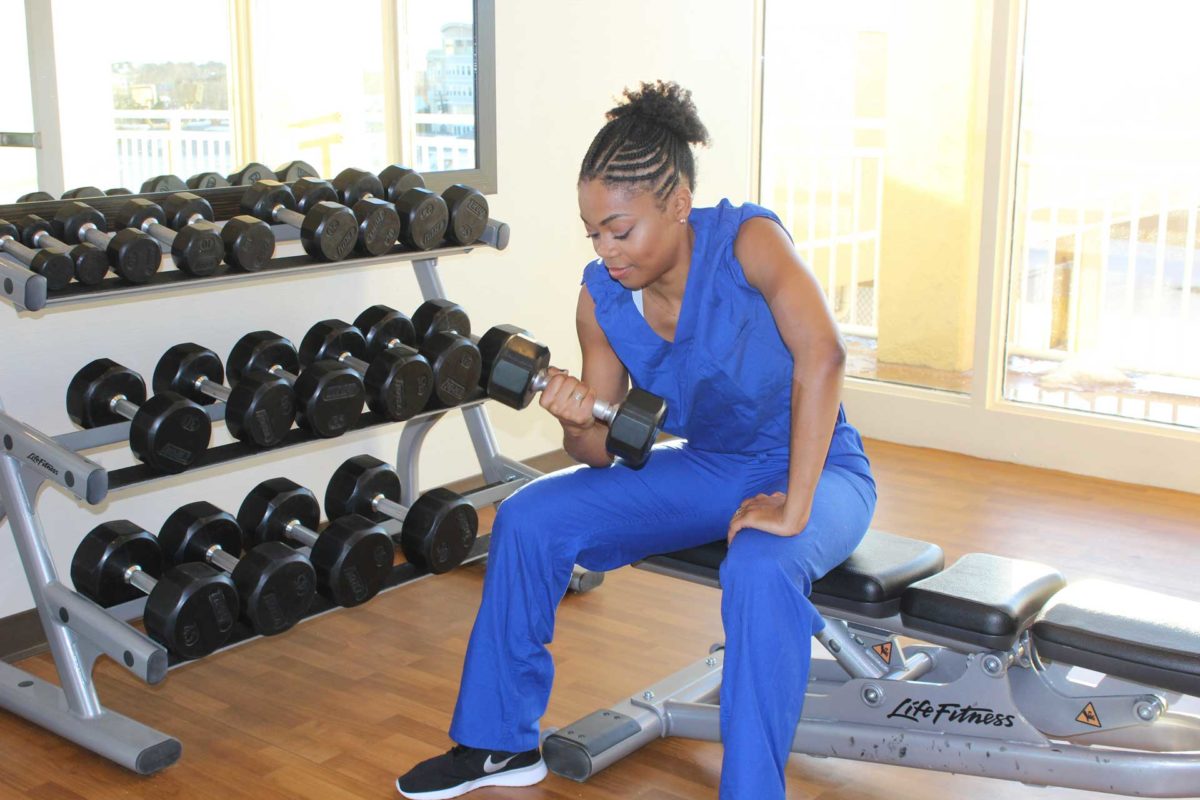It’s the middle of the year.
Let’s be real, you’re exhausted.
There’s no vacation in sight…. almost no hope for the immediate future.
If you’re not doing as well as you hoped, then you may be freaking out. Even if you are doing well, who knows what the next block will hold? What’s the best medicine to avoid burnout and exhaustion?!
Exercise!
Wait, but how will physical exertion make me less exhausted?
Staying physically active has many benefits for intense focus. It has been shown to:
- Improve sleep
- Reduce stress and anxiety
- Increase the volume of prefrontal cortex and medial temporal cortex (controlling thinking and memory)
One study at Harvard Medical School showed 120 minutes of moderate intensity aerobic exercise per week specifically was able to improve memory.
My medical school experience has been drastically different than most because attending my fencing club and the gym daily is mandatory for a good performance. I immediately noticed the benefits of staying physically active especially around exam time when I needed to reduce the most stress and increase my cognitive skills.
How to Stay Active
1. Pick something you enjoy
- If you like movement and don’t want to use free weights, try a class (Zumba, kickboxing)
- If you like team sports, join an intramural league
- If you want to push yourself to the limit, try Crossfit/Group HIIT training
- If you want a complete mind-body workout, try yoga
2. Set a schedule
- Never deviate from the schedule
- As soon as you push the planned gym time from 6 pm to 8 pm to read one more chapter or do 10 more questions, odds are you won’t be going to the gym. Choose the best time in the day with the least interruptions and make exercise a priority.
- Your schedule will provide a finite end to studying
- During my first and second year, I was on a strict schedule. I had three hours after lectures to be efficient with the first part of my studying before I left for fencing practice. Knowing I had to do something later in the day helped me to stay focused and reel myself back in if I was daydreaming or Facebook stalking.
3. Set goals
Setting goals are crucial because it gives workouts a purpose and keeps you motivated. Most importantly, when school gets stressful and demanding it’s easy to stop allocating “me” time but that is when you need it the most. One of my goals was based on fencing results. I had to go to practice to get better and I had to go to the gym to get stronger. Some of my classmates trained for marathons or competitions like the Tough Mudder. After you find your niche, find a competition to train for or a league to join to give you something to be excited about.
Trust me, after you develop a routine you will notice the benefits of staying physically active immediately. Stay healthy, stay happy!
Good luck!
About the Author: Kamali Thompson is an orthopedic resident. Outside of the hospital, Kamali is a fencer for Team USA. Not only was she the 2016 US national champion, but she was an alternate to the 2016 US Olympic team and is a 2020 Olympic hopeful. She is the author of her blog, Saber & A Stethoscope, which chronicles her journey as a dual degree medical student and fencing career. Follow her on Instagram at @dr.mali.mallz.







